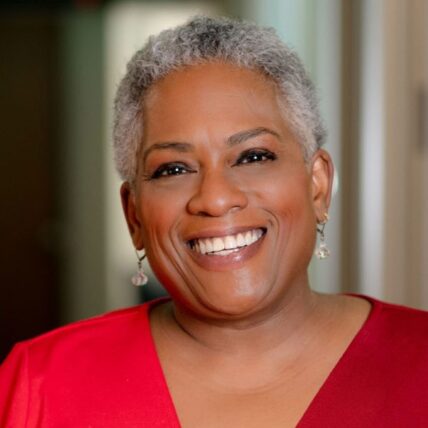Parental rights legislation without parental engagement is full of hot air and hidden motives
OPINION: If policymakers genuinely want to engage parents and students, they must genuinely seek out and embrace diverse voices to do what’s right — for everyone. The post Parental rights legislation without parental engagement is full of hot air and hidden motives appeared first on TheGrio.

OPINION: If policymakers genuinely want to engage parents and students, they must genuinely seek out and embrace diverse voices to do what’s right — for everyone.
Editor’s note: The following article is an op-ed, and the views expressed are the author’s own. Read more opinions on theGrio.
The parent-teacher bond is a partnership forged since the first schoolhouse opened its doors. Parents overwhelmingly love their child’s teachers, and teachers know that truly lifting the voices of parents can empower young people — particularly students of color and students from low-income backgrounds — to see themselves and their community reflected in the curriculum.
This relationship should be celebrated and strengthened through collaboration and goodwill, not by one-sided and burdensome legislation. However, it is clear the slew of state and federal parental rights bills being proposed across the country — including a national “Parents Bill of Rights” proposal adopted by the House Committee on Education and the Workforce in early March — does little to promote better alliances between parents and teachers. Instead, these bills use divisive, racially motivated tactics to pit parents against teachers in a not-so-subtle effort to delegitimatize and defund public schools, and in the process, win elections.
Rep. Virginia Foxx (R-N.C.) has said so several times since becoming chair of the House Education and Workforce Committee, even proclaiming in a recent interview with Education Week, “We’ve had a government-run monopoly on education for a long time, but it’s outdated. It has failed students.”
House Republicans blame teachers and administrators for stonewalling and silencing parents during the pandemic and see now as a perfect time to get back at them — even if that means further igniting culture wars and burning down the public schoolhouse in the process. By all accounts, they soon plan to introduce parental rights legislation, followed by school choice legislation that could be a cash grab to divert funds — through the expanded use of vouchers — from an already cash-strapped public education system, where more than half the pupils are students of color.
I have been involved with education legislation for the better part of three decades — first on Capitol Hill, then with the U.S. Department of Education in President Obama’s administration and now at the Education Trust. I have no doubt that the parental rights legislative proposals being considered by conservatives all over America are not only unnecessary but would result in a chilling effect on teachers, administrators, students and public schools. Some of the proposals have the potential to create chaos by giving every parent the right to micromanage everything a school does, from what teachers teach, to how students identify themselves, to whom administrators hire, resulting in even more teacher turnover, staffing shortages and harming students’ success in the classroom. And when enough is still not enough — and it never will be — parental rights legislation could be followed by efforts to significantly defund public schools.
That’s the extreme right playbook for at least the next two years. As fierce advocates for education equity, we must resist any attempts to use our children as pawns to advance political agendas that are not in their best interests.
Federal law already recognizes important rights that parents have, including requesting instructional materials and opting students out of some activities to protect their confidential information. According to a study by NPR and Ipsos, across the political spectrum, parents are satisfied with their rights and aren’t trying to settle pandemic scores or demanding trumped-up “rights” to quell the freedom of thought and intellectual curiosity of students. This is far from their top concern.
As a mom of two public school students, this is far from my top concern. And I, like many other parents, take issue when legislators blow in our ear and tell us it’s a windy day. That’s exactly what is happening when changes are proposed to bolster so-called parental rights without a clear need and without including everyday parents in the process.
Take the debate over what has been dubbed “critical race theory” in our schools. According to a new tool developed by the Education Trust in partnership with CASEL, none of the eight states that have passed legislation or made rules to “ban CRT” adequately work to include parents and communities — much less diverse parents and communities — in state-level education policy and practice decisions. Despite claims that these bans are based upon parents’ rights to decide what their children are taught in school, there are no clear structures at the state level for parent engagement, such as parent advisories or explicitly including parents in state boards of education.
Furthermore, only four of the eight states banning CRT explicitly include student voices in state-level decisions through a student advisory board or by having a student on the state Board of Education as a non-voting member.
You have to ask yourself, “Do they really want engagement?” If policymakers genuinely want to engage parents and students, they must genuinely seek out and embrace diverse voices — do what’s right for everyone — not just the ones with the loudest megaphones paid for by organizations that don’t represent parents.
Focus should be on authentic family engagement that improves academic outcomes by creating a shared sense of responsibility between families and educators. Real engagement is set up to inform consistently from all points of view, not in a haphazard and reactionary way or at the exclusion of others — especially those from communities of color and other underserved populations. That means educators and parents who commit to meaningfully listening and collaborating with each other. That means educators and parents who commit to putting political agendas aside in favor of making quality, age-appropriate education the top priority.

Denise Forte is the president and CEO of the Education Trust. As one of the country’s leading voices on education equity, Denise is a fierce advocate for employing evidence-based strategies to create high-achieving learning environments that turn barriers and gaps into bridges and pipelines for students of color and students from low-income backgrounds.
TheGrio is FREE on your TV via Apple TV, Amazon Fire, Roku, and Android TV. Please download theGrio mobile apps today!
The post Parental rights legislation without parental engagement is full of hot air and hidden motives appeared first on TheGrio.










![Brandy and Monica Address Past ‘Confusion and Conflict’ While Announcing ‘That Boy Is Mine’ Joint Tour [Video]](https://www.lovebscott.com/wp-content/uploads/2025/06/3e4c19e4ced74fcca75359da112c255d_md.jpg.webp)

